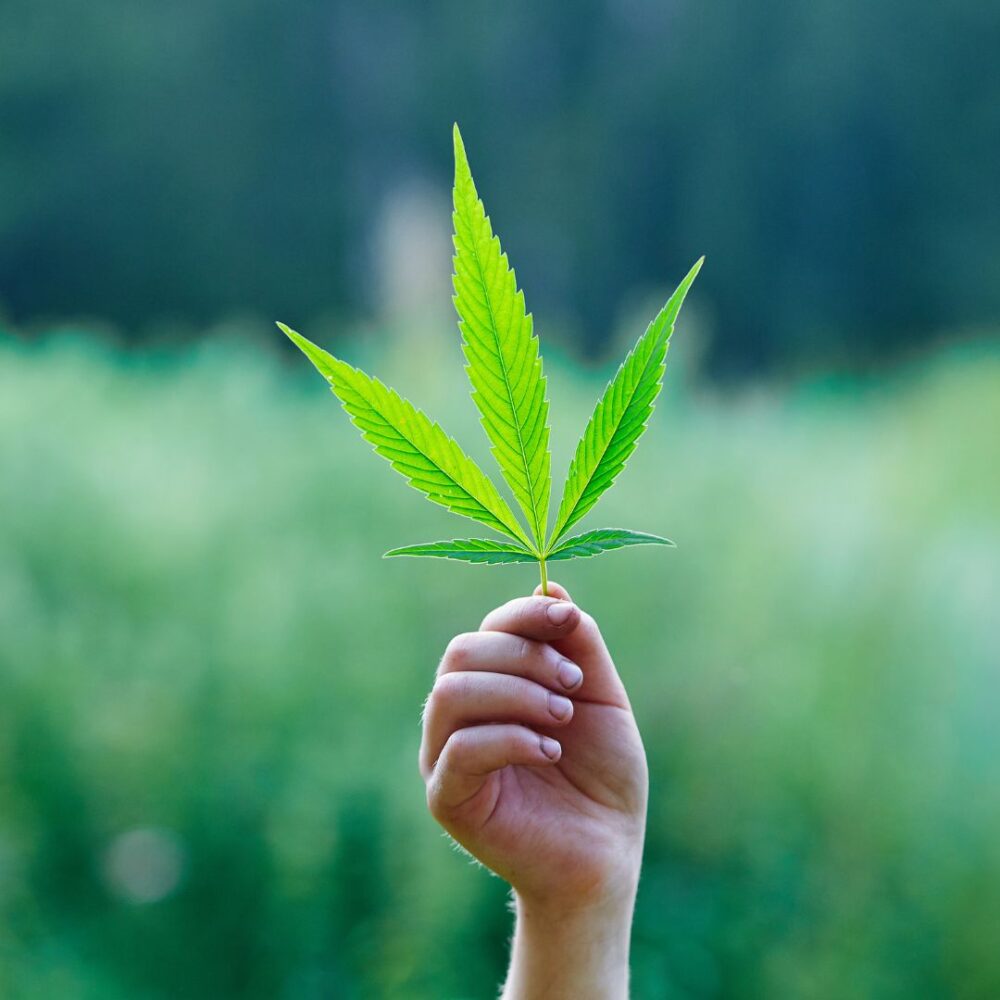
Lately, people have been raging a lot about hemp oil and CBD oil as effective natural remedies and dietary supplements for a number of ailments. It seems like even more people nowadays are looking for alternative treatments for various issues like chronic pain and even nausea.
Both hemp seed oil and CBD oil are made from different parts of the hemp plant, mainly the seed and the flower.These produce vastly different kinds of oils and properties that should be considered before buying.
In this blog, let's get into where these oils come from, their unique properties, and their amazing health benefits. Plus, learn how effective these oils are in helping you manage anxiety. By the end, you should have a better understanding of these two oils and be able to make an informed decision about which one is the right fit for your needs.
Article Highlight
- Hemp seed oil is a fantastic natural remedy beneficial for your overall mental health and well-being. It contains low concentration of cannabinoids, and is often used in cooking and salad dressing recipes.
- Meanwhile CBD oil is specifically researched and backed by clinical trials for particular health benefits like anxiety relief. It contains a significant amount of the CBD cannabinoid.
- It's good to note that hemp seed oil and CBD oil are cannabis derived compounds and both are legal and not limited in the Federal controlled substances act since types of oils don't exceed to the 0.3 THC content limit.
- Hemp seed oil is known for its high concentration of Omega-3 fatty acids.
What is Hemp Oil?
So, to start this chat, let's dig deep first about hemp oil. But what exactly is it? Well, it's more popularly known as hemp seed oil for the reason that it comes from the seeds of the Cannabis sativa plant.
To get the oil, a process called cold pressing is used to extract it. This process is where the seeds are mechanically pressed and processed (aka purified) at low temperatures.
One very important thing to remember is that hemp oil doesn't contain any significant amounts of THC, the psychoactive compound, or CBD and other non-psychoactive cannabinoid compounds found in the cannabis plants.
What you'll actually find in hemp oil is this bunch of compounds like essential fatty acids, such as omega-3 and omega-6, as well as various nutrients such as vitamins, minerals, and antioxidants. These nutritious components are what give hemp oils their numerous beneficial effects, including its potential to help with many health conditions from pain relief and amazingly, anxiety relief.
So what does the nutrient profile look like for hemp seed oil? Take a look at this meta study on hemp seed oils:
You've probably heard a lot about omega-3 fatty acids, which is found in hemp oil, plays a very big and helpful role in keeping your brain healthy and functioning at its best. In fact, studies have shown that these fatty acids can help reduce inflammation in the brain, improve cognitive function, and even alleviate symptoms of anxiety and depression.
But that's not all, the nutrient-dense profile of hemp products provide essential vitamins and minerals that support your overall mental health and wellbeing.
Now, it is good to know that hemp oil doesn't actually directly target anxiety like CBD oil does (we'll get to that in a bit), its nutritional content and anti-inflammatory effects can still help reduce anxiety by promoting a healthy brain and nervous system in the human body.
Understanding CBD Oil
Now let's delve down into CBD oil, which is also known as cannabidiol oil. This cannabinoid also comes from the cannabis sativa plant, specifically from its flowers and leaves.You might already know that hemp plant is a variety of the Cannabis sativa plant species, but it's important to remember that this variety has a low THC content. THC, as mentioned, is the cannabinoid that causes psychoactive effects and gives you that "high" feeling when using marijuana.
On the other hand, CBD, being a non-psychoactive cannabinoid, is usually utilized for commercial use.
Most of the CBD oil found in the market comes in three different types:
- Full spectrum CBD oil: this oil contains all the cannabinoids found in the hemp flower (which there are now over 100 known types).
- Broad Spectrum CBD oil: this oil contains some of the major cannabinoids, except for THC.
- CBD Isolate: this is the powder form of CBD, chemically isolated into a high purity crystal. There are no other cannabinoids present besides CBD.
All these different oils are derived from extraction processes from the hemp flower. Depending on the amount of purification after hemp flower extraction, there can be other compounds present, and not just cannabinoids. This can include fatty acids, chlorophylls, terpenes, and flavonoids.
Most hemp oil experts will tell you that the full spectrum oils are the best product since combing all the cannabinoids together producers a superior effect, termed the "entourage effect".
CBD oil legality
However, its commercialization was significantly impacted by the Agriculture Improvement Act of 2018. All CBD products as well as other cannabis products, through this act, were legalized from production to sale as long as it has a THC level of below 0.3%.
This act provided a regulatory framework at the federal level for the cannabis industry and it opened up opportunities for both animal and human studies, cultivation, and the development of various cannabis derived products.
Comparing Hemp Oil and CBD Oil: Key Differences
Next up, let's take a moment to compare hemp oil and CBD oil, since these oils come from the hemp plant but have some unique differences.
Cannabinoid Content
Hemp oil, or hemp seed oil, only have trace amounts of cannabinoids in it. It's mostly used for its nutritional benefits.
Whereas, CBD oil has a high amount of pure CBD as its active ingredient as well as other cannabinoids, which could offer some more targeted therapeutic properties.
THC Levels
Hemp oil has no THC in it because it's extracted from hemp seed, which itself, has almost no cannabinoids present. Meanwhile, CBD oil might have a tiny bit of THC content not exceeding 0.3%.
Legal Considerations
Both hemp oil and CBD oil are legal in most countries, as long as they meet specific THC content requirements under the federal law. It's very important to check your local laws and regulations covering the cannabis product industry, as they can be different depending on where you live.
Potential Effectiveness for Anxiety Relief
Hemp oil probably won't help much targeting anxiety itself since it's mostly used for its nutritional benefits.
On the other hand, CBD oil, as studies suggest, has potential therapeutic effects on anxiety disorders. These CBD products interact with the endocannabinoid system, which plays a role in regulating many bodily processes, like mood and anxiety.
However, CBD oil more notably works in targeting the receptors involved in the endocannabinoid system that provide significant relief for anxiety.
Side Effects and Adverse Reaction
Hemp oil is generally considered safe with minimal risk, while CBD oil may have some potential side effects such as dry mouth, drowsiness, and changes in appetite. There's no serious adverse effects or safety concerns that was noted in using hemp oil and CBD oil as long as they are used with appropriate dosing
Hemp Oil vs. CBD Oil for Anxiety Relief: A Concise Guide
Deciding between whether you pick hemp oil or CBD oil for anxiety relief is straightforward. You should be choosing cannabinoids over hemp seed oil if anxiety relief is your goal.We would also recommend CBDA (cannabidiolic acid) over CBD since it has over 500% better absorption, and also targets both the endocannabinoid system and the serotonin system for anxiety relief.
For dosing of CBD or CBDA oil for anxiety relief:
- CBDA: We typically recommend anywhere between 30mg and 100mg a dose. Some people take with their morning coffee while others use after work and in the evening. We have heard from some customers that they use this twice a day as well depending on how bad their anxiety is.
- CBD: Studies with CBD and anxiety disorders typically use in the 200mg to 600mg range to get good results. If you are trying CBD, this may be the dose range for you.
Here are some factors you should consider so you can make the best choice for yourself:
Personal Preferences for taste: Hemp oil, which comes from hemp seeds, has a nutty flavor. On the other hand, CBD oil, extracted from the entire hemp plant, has an earthy taste but is usually flavored. Pick the one that appeals to your taste buds.
Legal Regulations: Hemp oil is usually legal because it has such a low THC content (<0.3%). CBD oil's legality can change depending on its THC levels. Make sure to look up local laws before buying.
Budget Considerations: CBD oil is generally more expensive than hemp oil because it has more cannabinoids and the extraction process is more complex. Take a look at your budget and pick the option that's most cost-effective for your needs.
Conclusion
So, to sum it up, both hemp oil and CBD oil can offer some benefits if you're looking for anxiety relief. Hemp oil is great for overall mental health and well-being, while CBDA and CBD oils are more specifically researched for their effects on anxiety.When deciding between the two, think about your taste preferences, local laws, how strong you want the effects to be, and your budget. By understanding the differences between hemp oil and CBD oil, you can find the best option for your needs.
Just remember to chat with a healthcare professional before adding any new supplement to your routine.



